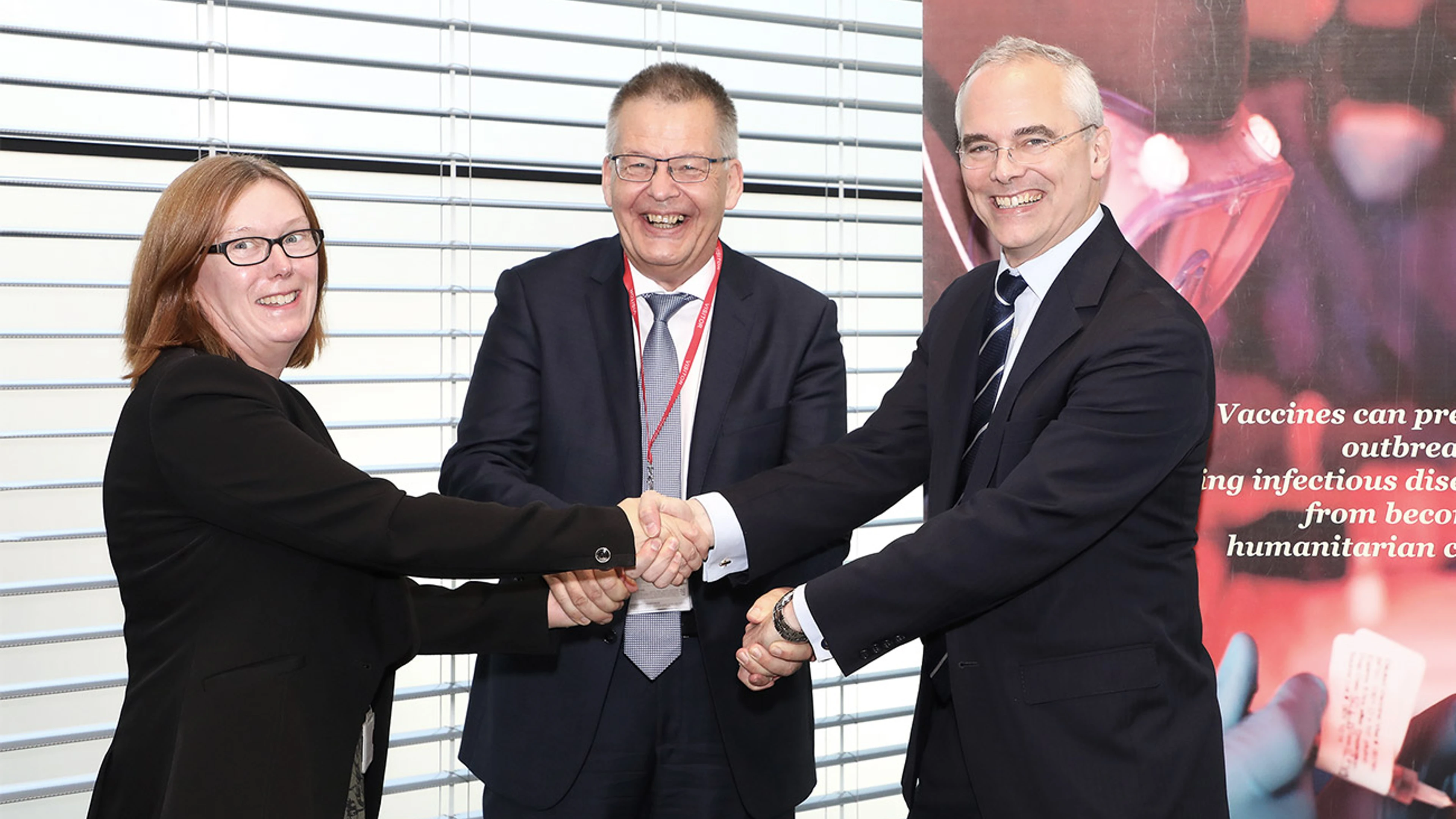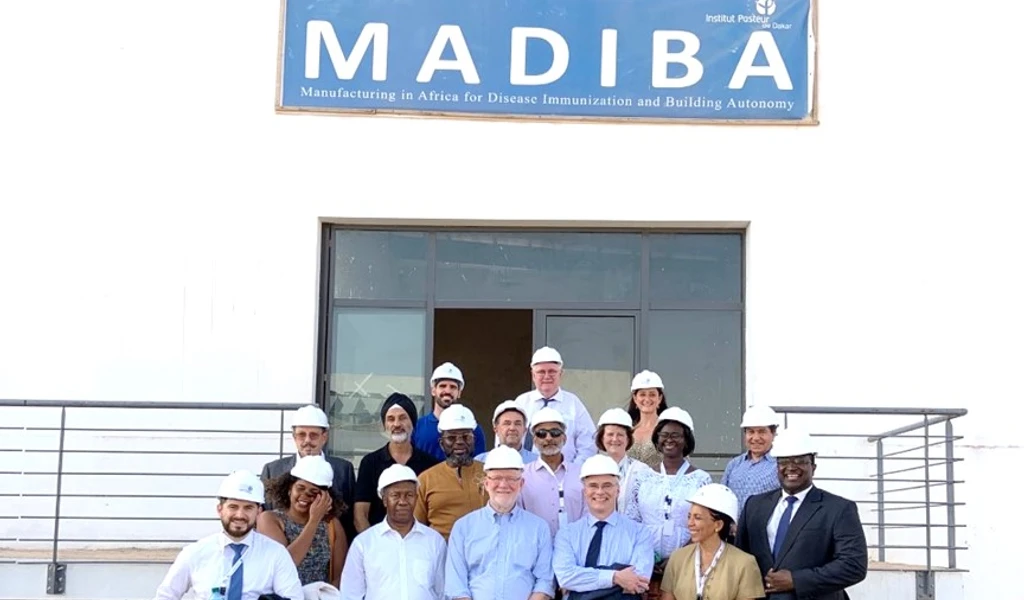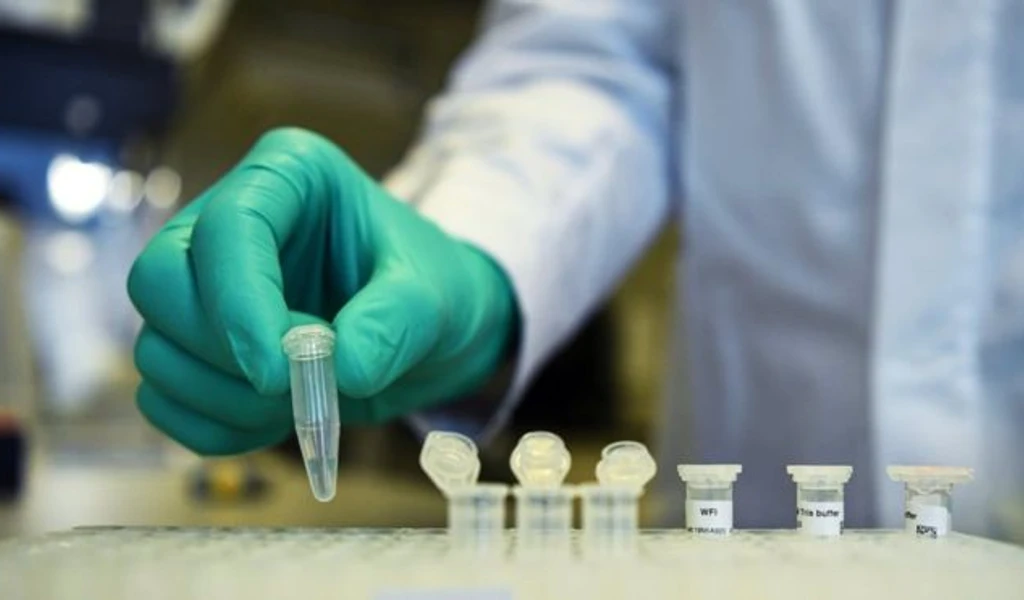CEPI Awards Contract Worth Up To USD$19 million to Oxford University and Janssen Vaccines to Develop MERS, Lassa, and Nipah Vaccines

OSLO (Norway), Oxford (UK)
CEPI (the Coalition for Epidemic Preparedness Innovations) today announced a collaboration with The Jenner Institute at the University of Oxford and Janssen Vaccines & Prevention B.V.—part of the Janssen Pharmaceutical Companies of Johnson & Johnson—through which they will receive funding to advance the development and manufacture of a vaccine against Middle East Respiratory Syndrome Coronavirus (MERS-CoV). Preclinical development of novel vaccines against Lassa and Nipah viruses will also be undertaken as part of this collaboration.
Oxford has already initiated clinical development of the MERS-CoV vaccine, with funding from the UK Department of Health and Social Care, and a phase 1 clinical trial of the vaccine is underway in the UK. Under the terms of the Framework Partnering Agreement for the collaboration, Oxford and Janssen will receive $14.6 million from CEPI to support manufacturing of a phase 2 batch and preparation for stockpiling of a MERS-CoV vaccine candidate. Dependent on phase 1 results, CEPI will have the option to provide additional investment for a phase 2 trial and manufacture of an investigational vaccine stockpile that would be available for use in the event of an outbreak. Janssen's proprietary vaccine-manufacturing platform will enable rapid and efficient production of large volumes of vaccines. Should CEPI exercise its option to provide support for further clinical development, Oxford will undertake phase 2 testing of the vaccine, in partnership with the King Abdullah International Medical Research Centre (KAIMRC) in Riyadh, Kingdom of Saudi Arabia, and the Kenya Medical Research Institute (KEMRI)-Wellcome Trust Research Programme at Kilifi, Kenya.
As part of the collaboration, CEPI will also provide funding of up to $2.1 million to support the preclinical development of a Lassa vaccine and up to $2.0 million to support the preclinical development of a Nipah vaccine.
First identified in 2012, MERS-CoV is carried by camels and spread by droplet infection of the airways. Infection can cause respiratory disease including fever and a cough that can progress into severe pneumonia. Approximately 35% of reported patients with MERS-CoV have died. No vaccine against MERS-CoV is currently available.
Since it was first identified in Saudi Arabia in 2012, 2229 laboratory-confirmed cases of MERS-CoV have occurred in 27 countries. About 80% of human cases have been reported in Saudi Arabia. Large outbreaks have also occurred outside the Middle East. MERS-CoV can have devastating consequences; in 2015, one person infected with MERS-CoV returned to South Korea from the Middle East, subsequently spreading the virus to 186 people, resulting in the death of 36, and causing substantial socioeconomic disruption. Most recently, cases of MERS-CoV were reported in South Korea and the UK.
CEPI's collaboration with The Jenner Institute at the University of Oxford and Janssen Vaccines & Prevention B.V represents exactly what our coalition was set up to do: to drive development of vaccines to protect humanity against threats posed by emerging infectious diseases and to bring together the expertise of academia and the public and private sectors.
Both The Jenner Institute and Janssen Vaccines were involved in the clinical development of vaccines against Ebola during the 2014 Ebola outbreak, and we hope to benefit from their extensive experience in developing vaccines against emerging infectious diseases.
CEPI's investment of up to $19 million in our collaboration with Oxford and Janssen Vaccines, along with our option to provide future investment, reinforces our commitment to creating a world in which epidemic risks like MERS, Lassa, and Nipah are no longer a threat to humanity.
At the Jenner Institute we are strong advocates for the use of proven platform technologies for the rapid and cost-effective development of vaccines against emerging pathogens. In partnership with CEPI and Janssen Vaccines we will use our simian adenoviral vaccine vector ChAdOx1 in preclinical and clinical development of vaccines against MERS, Nipah, and Lassa. The clinical safety of the viral vector platform and ability to induce potent immune responses have already been demonstrated and we look forward to working with Janssen on the important next stages of the development of all three vaccines, using our complementary expertise in this important new initiative.
Vaccitech, a spin-out company of the University of Oxford, holds rights to the MERS vaccine candidate. They have granted certain rights for this vaccine to Oxford to enable development for non-profit public-health use.
We are delighted that our ChAdOx1 MERS vaccine is being further developed for global public health causes by the strong partnership of Oxford University, Janssen Vaccines & Prevention B.V, and CEPI.
About the MERS, Lassa, and Nipah vaccines in development
All of the vaccines employ the replication-deficient simian adenoviral vaccine vector ChAdOx1, derived from an adenovirus originally isolated from chimpanzees. We have selected this type of vaccine vector as a platform technology for the development of vaccines against multiple emerging pathogens because it has already been tested in over 6000 people in clinical trials, which have included vaccines targeting a variety of infections such as malaria. Replication-deficient simian adenoviral vectored vaccines are highly immunogenic and safe in all age groups, from one week of age to elderly adults. The vaccine vector can also be produced quickly and efficiently using Janssen's proprietory manufacturing technology, allowing rapid manufacture of vaccine stockpiles.
About CEPI
CEPI is an innovative partnership between public, private, philanthropic, and civil organisations founded in Davos in 2017 to develop vaccines to stop future epidemics. CEPI has received multi-year funding from Norway, Germany, Japan, the Bill & Melinda Gates Foundation, and Wellcome. CEPI has also received single-year investments from the governments of Australia, Belgium, and Canada. It has reached $630 million of its $1 billion funding target. The European Commission has announced a contribution in kind of €250 million that will support relevant projects through EC mechanisms. Since its launch in January 2017, CEPI has announced two calls for proposals. The first call was for candidate vaccines against CEPI's priority pathogens—to date, CEPI has invested over $260 million to develop five vaccine candidates against Lassa virus, four against MERS-CoV, and two against Nipah virus. The second call was for the development of platforms that can be used for rapid vaccine development against unknown pathogens. Learn more at CEPI.net. Follow us at @CEPIvaccines.
About The Jenner Institute
The Jenner Institute was founded in November 2005 to develop innovative vaccines against major global diseases. Uniquely it focuses both on diseases of humans and livestock and tests new vaccine approaches in parallel in different species. A major theme is translational research involving the rapid early-stage development and assessment of new vaccines in clinical trials.
The Institute comprises the research activities of over 30 Jenner Investigators who head leading research groups spanning human and veterinary vaccine research and development. Together the Institute Investigators comprise one of the largest non-profit sector research and development activities in vaccinology.
Jenner Institute Investigators, through the support of many funders, are developing new vaccine candidates against major global infectious diseases. New vaccines against malaria, tuberculosis and HIV are currently in field trials in the developing world. Research is also underway on livestock vaccines against foot and mouth disease, avian influenza, bovine tuberculosis and other major causes of economic loss. The Institute is a partnership between the University of Oxford and the The Pirbright Institute and is the successor to the former Edward Jenner Institute for Vaccine Research. The Institute is supported by the Jenner Vaccine Foundation, a UK registered charity and advised by the Jenner Institute Scientific Advisory Board (www.jenner.ac.uk/home, @JennerInstitute).
Contacts
CEPI
Rachel Grant
+44(0)7891249190
Mario Christodoulou
+44(0)2039174130
University of Oxford
+44 (0)1865 280528


